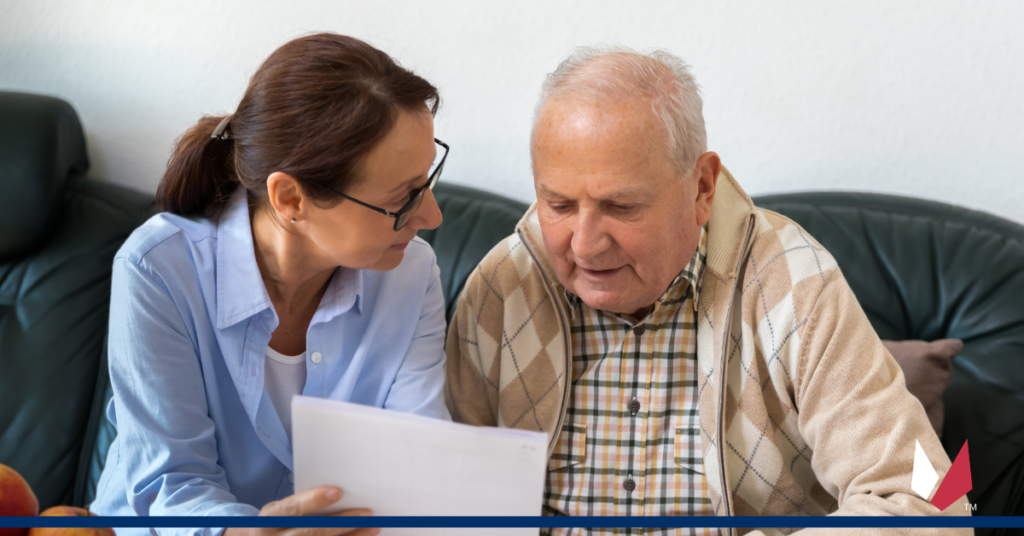Helping Families Understand Why a Veteran Refuses Home Care Services

The thought of aging can be daunting to anyone. We all worry about it. The reluctance to accept aging is the leading factor in why people make lifestyle changes. Most people try to stay active, eat healthily, and do everything possible to fight the aging process. A former director at AARP, Harry Moody, once said, “Everyone wants to live longer, but no one wants to be old.”
At some point, the challenges of aging can become overwhelming for anyone, whether it is the family watching their loved one or the person themselves going through it. In addition, the fear of losing one’s independence can make it difficult to accept assistance from family, let alone a home care professional.
Aging Veterans have the same fears and concerns as anyone. Yet, while friends and family empathize over the challenges they face, they may not understand the thought process of how a Veteran views the prospect of relying on help. Remember, these are the brave men and women who willingly took on the responsibility of keeping our nation safe and are not used to being the one who asks for help.
Asking for assistance may not be easy. Many individuals will consider themselves to be fiercely independent in life. They like the fact they can take care of themselves and even go so far as to look after the family, raise children, and even help friends and neighbors during difficult circumstances in their respective lives.
When people get older, they will slow down. Age will affect everyone, regardless of how well they take care of themselves, how well they eat, how much exercise they take in daily, etc. Furthermore, at some point in time, an aging veteran might reach a point when they have to call on a spouse, friend, neighbor, adult child, or somebody else they know for assistance. At first, it might be for something minor, but the need for help will likely grow. However, the Veteran or aging loved one may have difficulty asking for help, let alone accepting it.
Our aging loved ones don’t want to be a burden and may not know their options. For example, an aging Veteran will benefit from professional home care services at this point in their life and may not understand that they can stay independent in their own home.
Here are some tips for navigating the process:
- Families should be empathetic and supportive through this endeavor. Help the Veteran learn this is an option and not an attempt to take away their independence.
- Options help them feel like they have some control over their well-being and affairs.
- Always stay positive and patient with honest communication. No one wants to feel forced or tricked into a situation. There must be mutual trust and respect.
Taking care of the people who used to take care of us can be challenging from both sides. However, by treating them with kindness, understanding, and respect, our loved ones will still feel a sense of control, knowing their opinions matter.
Professional home care services are always an excellent option for an aging Veteran or loved one in need of help but doesn’t want to lose their independence. However, those Veterans who don’t see it as an option due to financial circumstances shouldn’t be overlooked. Aging wartime Veterans and their surviving spouses could qualify for home care assistance through the VA benefit Pension with Aid and Attendance, helping them remain independent with dignity. Veterans Care Coordination is here to help provide Veterans and their surviving spouses that option in a simplified manner with the respect they earned and deserve.
